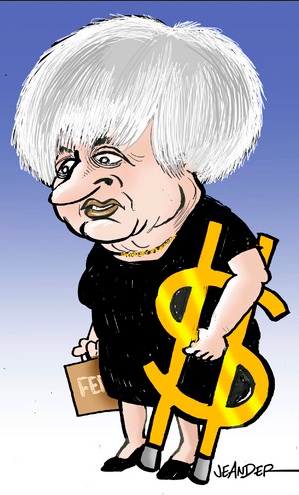Michael Haltman writes: The December increase was implemented despite inflation remaining well below the Fed’s target rate of 2% and in the face of a recovery that could be, at best, termed tepid.
At the time some speculated that the Fed needed to raise rates so that they would have the ability to lower them again should the economy weaken. Still others thought that to retain any credibility they needed to make a move.
Neither one of those could be called solid reasoning when making decisions impacting the U.S. economy.
And since the rate hike suggests the counterintuitive track of 2-year treasury note yields courtesy of treasury.gov…
The Federal Reserve has acknowledged that the U.S. economy has slowed down but provided little guidance about when it would raise interest rates again.
The central bank began pulling back its support for the recovery in December and signaled it anticipated increasing its benchmark rate four times this year. But weeks of turmoil on Wall Street have spurred doubts about whether the Fed will forge ahead.
For now, the central bank is standing pat. In a unanimous vote Wednesday, the Fed left the range for its benchmark interest rate unchanged between 0.25 and 0.5 percent. Its official statement emphasized the resilience of the job market despite the weakened recovery and pointed out strength in consumer spending and the housing sector.
So do we feel that the Fed as an institution with HUGE responsibilities, has a firm grasp on accomplishing its mandate?
Is the Federal Reserve, in effect the arbiter of the global financial system is run by academicians with little to no actual experience with business.
The Federal Reserve has no need to innovate or to push the envelope.
Government in effect has no responsibility to a bottom-line or a need to grow in any way other than raising taxes to bring in more revenue or to increase infrastructure to create more jobs.
Either way, whether through taxes or through government growth, the cost is borne by you and I, the taxpayer.
To further compound the problem of government bureaucrats setting policy for businesses and individuals is that I would venture to guess that many if not the majority have little to no actual business experience.
A perfect example might be the government mandated minimum wage of $15 an hour that might sound great to the voter, but will undoubtedly have unintended consequences politicians can’t be bothered with worrying about.
The above mentioned description certainly seems to be the case with Fed Chair Janet Yellen, an appointed government official who has much of the worlds financial future (at least in the near to medium-term) in her hands.

